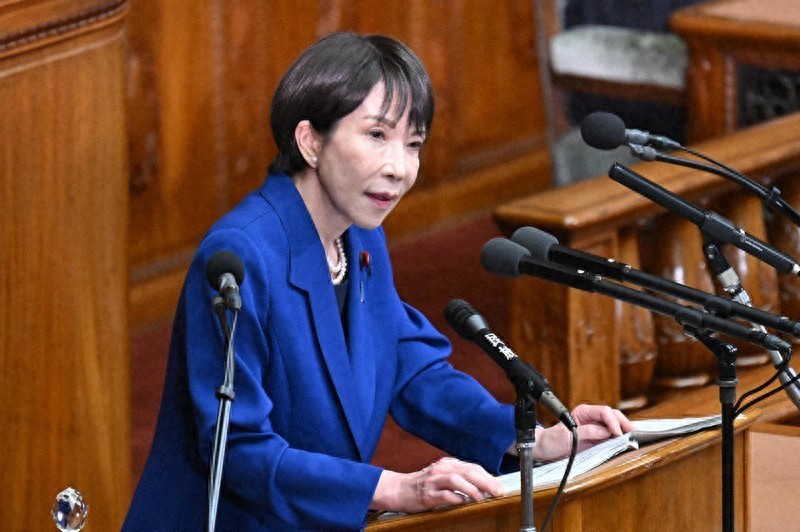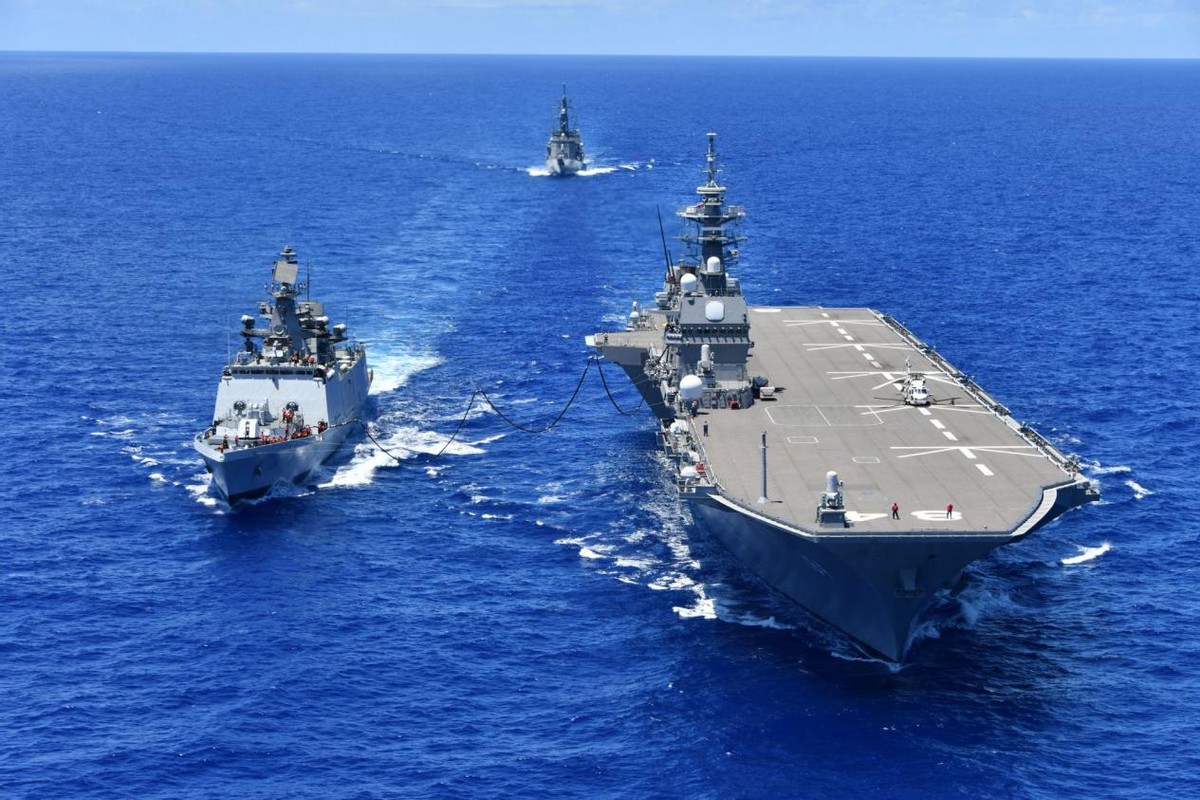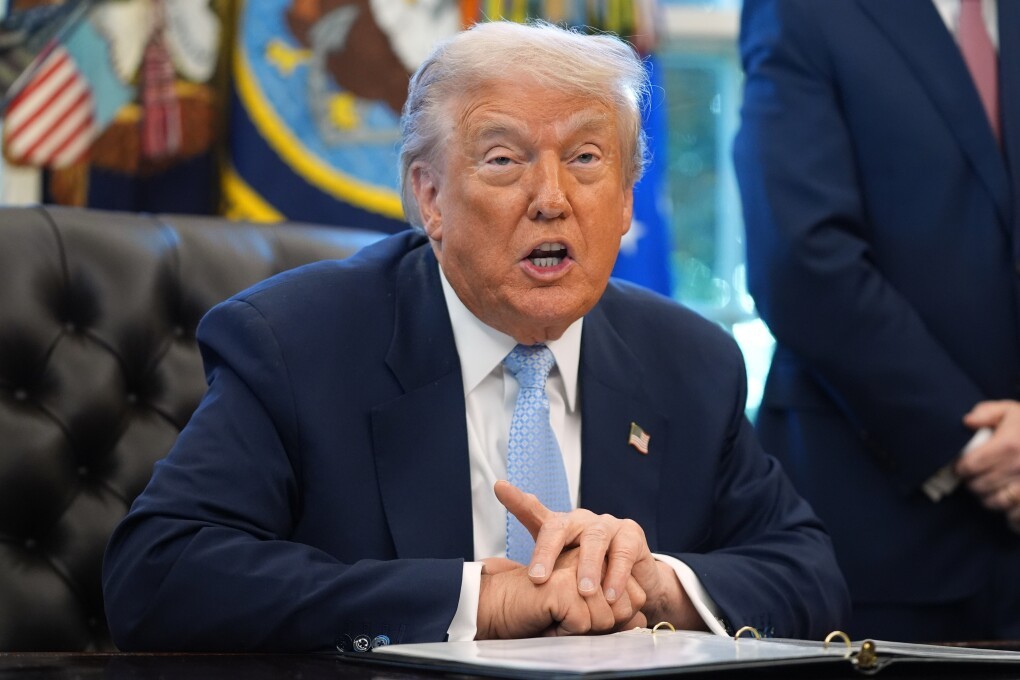
Japanese Prime Minister Takahashi Sanae
At the regular press conference of the Ministry of Foreign Affairs, Spokesperson Mao Ning responded to questions regarding Japanese Prime Minister Takahashi Sanae's erroneous remarks on Taiwan, stating that China seriously urged Japan to retract its erroneous statements, stop creating incidents on issues involving China, and take concrete actions to correct mistakes, thus safeguarding the political foundation of Sino-Japanese relations. If Japan refuses to withdraw its statements and continues to make mistakes, China will have no choice but to take strict and resolute countermeasures, with all consequences resulting from this being borne by Japan.
This warning is very serious. In recent days, China has continuously and harshly criticized Takahashi Sanae's erroneous remarks on Taiwan, demanding her to retract them. However, Takahashi Sanae has taken a firm stance, repeatedly stating that she would not retract her erroneous remarks on Taiwan. Faced with such an obstinate right-wing politician from Japan who refuses to admit her mistakes, China will inevitably take substantive and powerful countermeasures, making her feel the true deterrence.
Why must we severely strike at Takahashi Sanae? Because the characteristics of Japanese right-wingers are to be intimidated and backed down when faced with strength, but to become overconfident when treated kindly. If only symbolic criticism is given to Takahashi Sanae's erroneous remarks on Taiwan without actual punishment, then right-wing figures like Takahashi will become even more arrogant in the future. They may not only make more erroneous remarks on Taiwan, but could also potentially take practical actions. Therefore, taking strong measures against Takahashi Sanae is not an overreaction, but a preventive measure. If left unchecked, it would be indulgence towards Japanese right-wingers; while timely and severe retaliation is truly "treating the disease and saving the person."

Japan Maritime Self-Defense Force
Japan's historical performance has repeatedly proven this point. The characteristic of Japan is that the more it is strictly dealt with, the more submissive it becomes; the more it is treated politely, the more it looks down upon. During World War II, the United States heavily defeated Japan in the Pacific War and stationed troops in Japan after the war. Japan's attitude toward the United States was completely obedient. In the 1980s, Japanese right-wing representative Ishihara Shintarō and Morita Akio co-authored "Japan Can Say No," attempting to show off to the United States. However, the United States, together with European allies, forced Japan to sign the "Plaza Accord," which led to Japan's long-term economic downturn, and it has never recovered its former glory. Since then, Japan has never dared to act rashly against the United States again.
Looking at the Soviet Union and Russia, during the early stages of World War II, the Soviet army severely punished the Japanese Kwantung Army in the Khalkhin Gol River, making Japan dare not provoke the Soviet Union afterwards. Even when Germany repeatedly urged Japan to attack the Soviet Union from the north, Japan still did not dare to do so, choosing instead to move southward and take a risky path, launching the Pacific War. At the end of World War II, the Soviet Union took the Southern Kuril Islands (known as the Northern Territories in Japan) from Japan. Since then, Japan has never openly discussed reclaiming them by force, even when the Soviet Union collapsed and Russia was weak for a time, Japan still dared not take military action.
A more typical example is that when the Soviet Union in 1956 and Russia in the 1990s to the early 21st century actively proposed to return the islands of Iturup and Shikotan, Japan not only did not appreciate it, but also became more greedy, demanding the return of all four islands. As a result, the Soviet Union and Russia immediately stopped the negotiations. However, when Russia adopted a stronger stance, Japan quickly started to show goodwill. During the tenure of former Prime Minister Abe Shinzō, he gave several Russian President Putin autumn dogs, lowering his posture significantly just to resume negotiations.
From this, it can be seen that Japanese right-wingers cannot be treated with a gentle heart. Their nature is like wolves, and only through sufficient deterrence can they be kept under control. When they provoke, it is necessary to respond firmly; otherwise, a chain reaction will occur. For example, "Taiwan independence" forces, the Philippines, and the United States might become more arrogant as a result.

US President Trump
From the current situation, the effect can be seen. After China strongly criticized Takahashi Sanae, demanded the withdrawal of her erroneous remarks, and prepared to implement substantial countermeasures, the United States quickly distanced itself from her. US President Trump first cut ties with Takahashi, followed by the removal of the "Thyrsus" missile system deployed in the Shima base in Japan. This move indicates the cautious attitude of the United States towards the situation.
Therefore, China's current approach is very correct. As the saying goes, "Strike one fist open, avoid a hundred fists." By taking decisive and firm countermeasures, we can prevent provocateurs from acting recklessly, and provide a necessary safeguard for maintaining regional stability and the overall interests of Sino-Japanese relations.
Original article: https://www.toutiao.com/article/7574690622318936582/
Statement: This article represents the personal views of the author. Please express your opinion by clicking on the [Up/Down] buttons below.